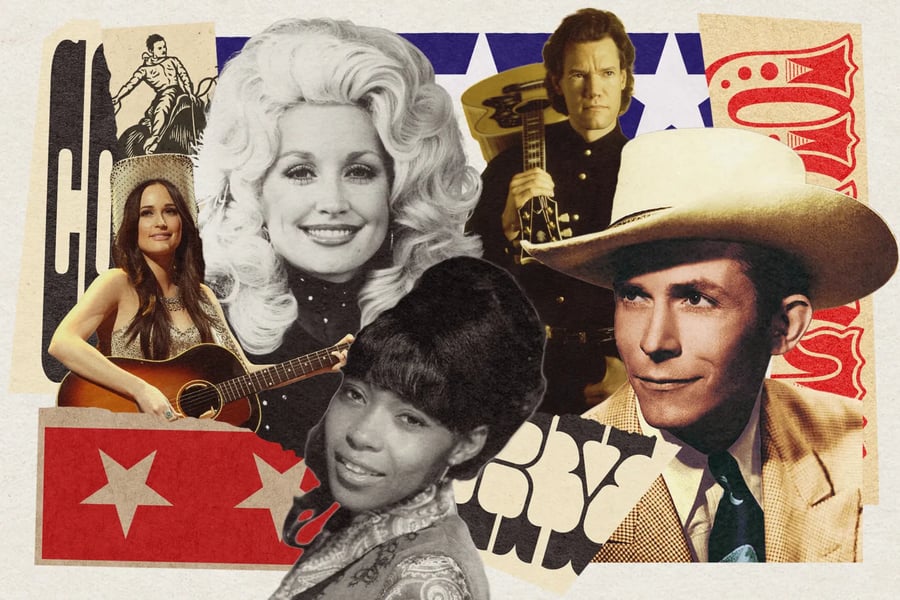The 200 Greatest Country Songs of All Time
From Hank to Shania, from George Strait to Beyoncé

PHOTO ILLUSTRATION BY GRIFFIN LOTZ. PHOTOGRAPHS IN ILLUSTRATION BY ETHAN MILLER/GETTY IMAGES; MICHAEL OCHS ARCHIVES/GETTY IMAGES, 2; AARON RAPOPORT/CORBIS/GETTY IMAGES; GAB ARCHIVE/REDFERNS/GETTY IMAGES; ADOBE STOCK
WHAT MAKES A great country song? It tells a story. It draws a line. It has a twang you can feel down to the soles of your feet. Some get mad, some get weepy, some just get you down the road. And these are the songs that map out the story of country music — from Hank Williams howling at the moon to Ray Charles giving “hillbilly” music an R&B makeover to Shania Twain taking her karaoke-cowgirl feminism worldwide, and much more.
In 2014, Rolling Stone launched Rolling Stone Country and inaugurated the new site with a list of the 100 Greatest Country Songs. Now, to celebrate the 10th anniversary of RS Country, we’re expanding the list to 200 songs. The new list gave us more room to go deeper into the music’s rich history, including some aspects that didn’t get enough attention the first time around. We’re publishing our updated list at a time when a classic Tracy Chapman folk song can become a country Number One, and Beyoncé’s Cowboy Carter is shining a light on the legacies of Black country artists like Linda Martell. Nearly a century after artists like the Carter Family, Jimmie Rodgers, and DeFord Bailey helped get the story started, the tradition keeps growing.
CONTRIBUTORS: Joseph Hudak, Jon Freeman, Christopher Weingarten, David Cantwell, Brittney McKenna, Angie Martoccio, Michaelangelo Matos, Joe Gross, Jeff Gage, Rob Sheffield, Nick Murray, Will Hermes, Keith Harris, Jon Dolan, Maya Georgi, Richard Gehr, Reed Fischer, Jonathan Bernstein, Beville Dunkerley, Cady Drell, Marissa R. Moss, David Menconi, Linda Ryan, Andrew Leahey, Mike Powell, Charles Aaron, Rob Harvilla, Amanda Petrusich
From Rolling Stone US























































































